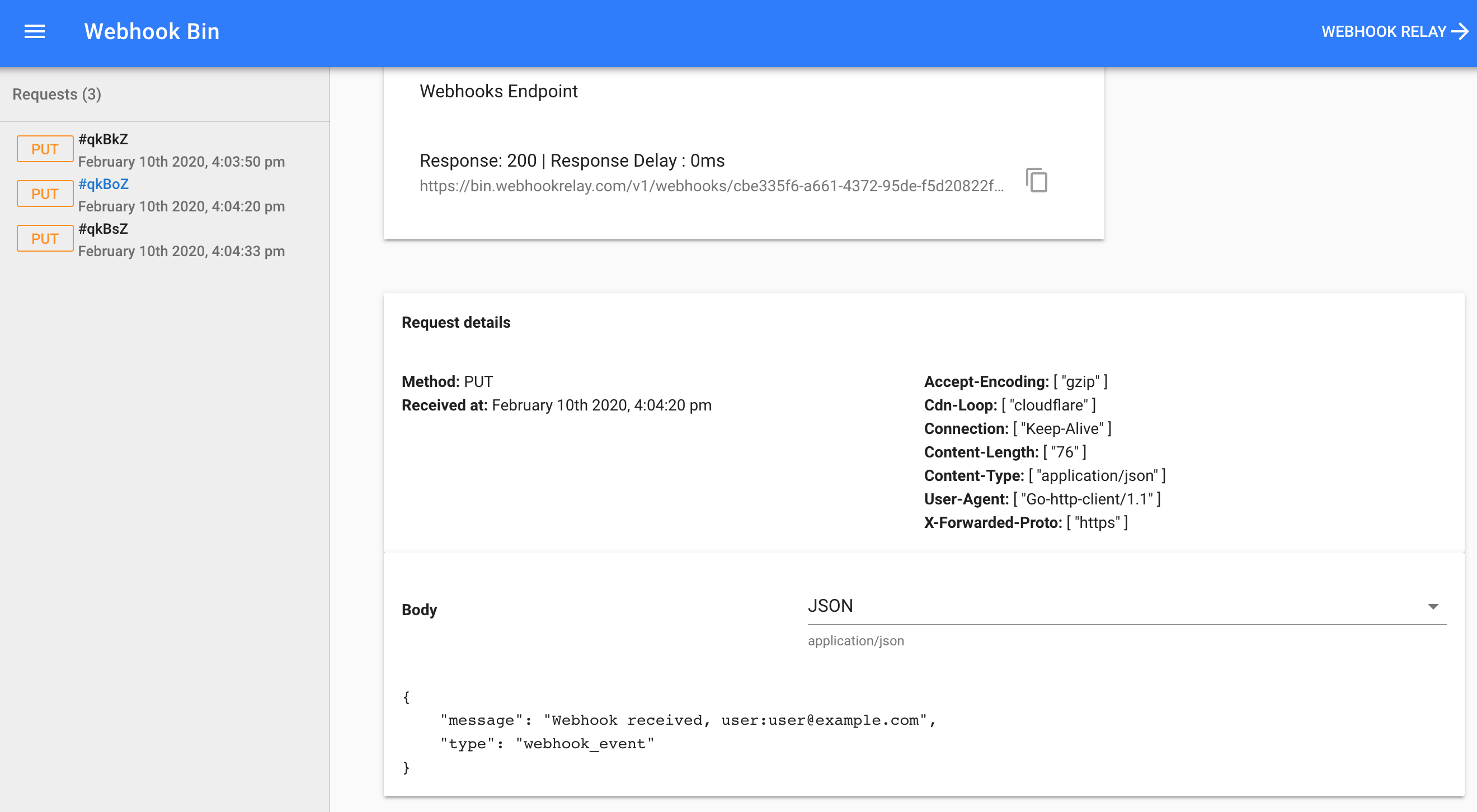Manipulate webhook request body
This example will demonstrate how to modify webhook requests on the fly using Webhook Relay Functions that provide FaaS (Function as a Service) functionality. We will create a Lua function, configure routing and then send a test payload.
Create a Function
This Function will parse JSON payload and then will construct a new JSON payload. It will also change HTTP method (to PUT) and set a content type header. Save it to a file my_function.lua:
-- my_function.lua
local json = require("json")
local body, err = json.decode(r.RequestBody)
if err then error(err) end
local message = "Webhook received, user:" .. body["data"]["user"]
-- Preparing new payload
local new_payload = {
type= "webhook_event",
message= message}
local result, err = json.encode(new_payload)
if err then error(err) end
-- Set request header to application/json
r:SetRequestHeader("Content-Type", "application/json")
-- Set request method to PUT
r:SetRequestMethod("PUT")
-- Set modified request body
r:SetRequestBody(result)Now, add this function to your account:
relay function create my_function.luaTo view your functions:
$ relay function ls
ID NAME DRIVER SIZE AGE UPDATED AGO
6f65e856-374a-49f8-92a2-e6db2281a177 my_function lua 330 B 3 seconds 3 secondsConfigure where to forward
Now, we will need some target where to send webhooks. Normally it would be just your system that is supposed to receive them (your backend application, Zapier, Slack, etc..)
For the sake of this example we will use https://bin.webhookrelay.com/ service. Once you enter the site you should be able to see a generated webhook inbox, copy your endpoint (https://bin.webhookrelay.com/v1/webhooks/xxxx) and use relay forward command:
relay forward \
--bucket modify-req-with-func \
--function my_function \
--type public \
https://bin.webhookrelay.com/v1/webhooks/xxxHere:
- –bucket option with ‘modify-req-with-func’ instructs to create a new bucket or reuse existing one. They are used to group inputs and outputs.
- –function option specifies to use our newly created function.
- -type specifies to treat the destination as public one so user doesn’t need to start the relay agent on any computer or server.
- https://bin.webhookrelay.com/v1/webhooks/xxx is our webhook destination.
Once the command is executed, you should display
Send test payload
Let’s send a test payload:
curl --request POST \
--url https://my.webhookrelay.com/v1/webhooks/80d49ea0-0a96-4933-be6d-f128972e1a7d \
--data '{
"data": {
"user": "[email protected]"
}
}'You can view modified requests in Webhook Relay dashboard and in the Webhook Bin Service:

Where body is now:
{
"message": "Webhook received, user:[email protected]",
"type": "webhook_event"
}and HTTP request method is PUT.
That’s it, you have transformed the webhook!
